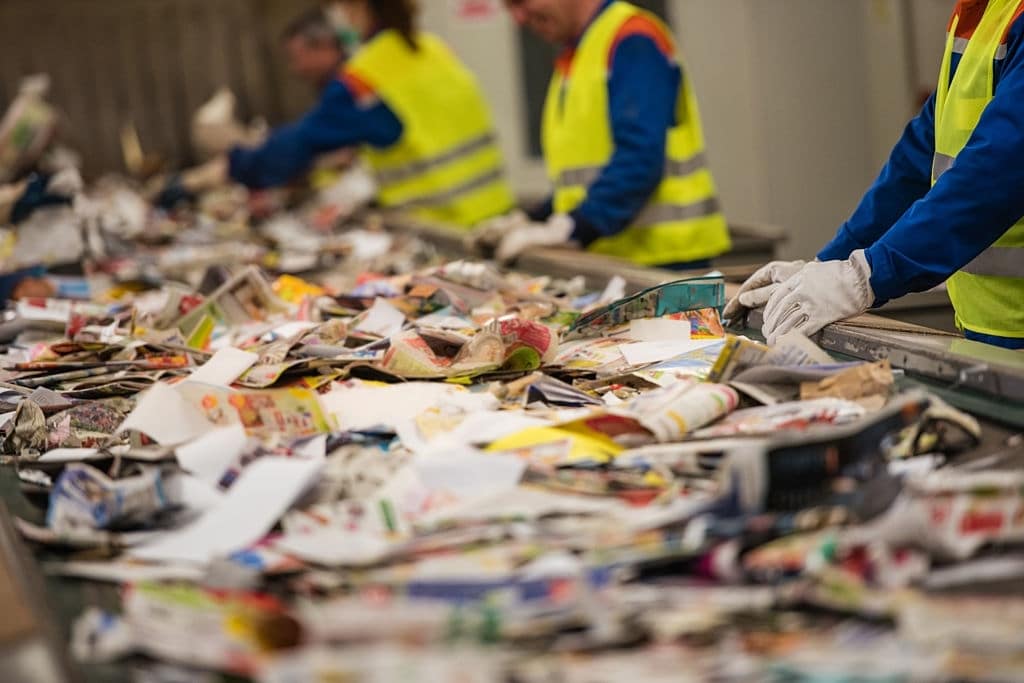Hundreds of thousands of South Africans go hungry, while about 34 per cent of food produced in the country goes to waste. Prof. Suzan Oelofse’s research focuses on reducing the impact of waste on society and the environment. Knowing that her work matters, makes a demanding career worthwhile.
CSIR principal researcher Prof. Suzan Oelofse is a waste management specialist who works on projects that seek to provide scientific evidence on the impact of waste management on society and the environment. She develops policies, strategies and guidelines on waste management for government and industry, and has authored national domestic waste collection standards that apply to all municipalities in South Africa.
Oelofse’s love for science presented her with an opportunity to do a PhD in botany, the scientific study of plants. “I never really decided to become a researcher. I did an MSc in biotechnology and plant tissue culture, out of interest, but continuing with a PhD was not an easy decision. But I did enjoy doing research and I qualified for a bursary from the National Research Foundation, so I continued with a PhD in botany,” she says.

Her first job was in the biotechnology laboratory of a private company, but then a job opportunity as a waste management officer in the public sector crossed her path. Being a nature lover and concerned about environmental pollution, she saw an opportunity to make a difference. “I thought that this would mean the end of my science career though,” she says. Ten years later, a research position in pollution and waste management was advertised at the CSIR, and her experience in the pollution and waste field landed her the job as a waste management researcher.
Research in waste management has many facets and no two projects are the same. She has estimated food waste generation in South Africa, undertaken waste characterisation studies, and developed policies and guidelines. Her work typically involves literature searches, conducting surveys, running extensive stakeholder consultation processes, and even physically sorting and measuring waste in the field. She appreciates every opportunity to learn and has worked on subject matters that she initially knew very little about, such as food waste, absorbent hygiene products and waste tyres.
“The benefits of conducting research are that you learn a lot through reading, conducting site visits, and meeting knowledgeable people,” she says. She is proud to have been involved in the development of policies and standards that have been approved for national implementation, and hopes to continue to make a difference.
“I am currently working on a United Nations Industrial Development Organization project to support South Africa’s transition from conventional plastics to more sustainable alternatives. The project aims to reduce the leakage of plastic into the environment,” she says. This work is about understanding the environmental effects of both the alternatives and plastic leakage, and developing an action plan for South Africa.
This will guide decision-makers and enable them to make informed decisions about the replacement of conventional plastics. “We cannot afford to replace problematic plastic products with something that may be worse for the environment.”
She says that her proudest moments are when her work is taken up and implemented. One of the highlights of her career was when she met an entrepreneur, a black woman, whose business idea was sparked by an example that she has included in the Municipal waste management – Good practices guideline that she had compiled. This business now operates internationally.
Current position: CSIR principal researcher
Career type: Environmental scientist
Current research interest: Reducing the impacts of food losses and waste on food security and the environment
Education: PhD Botany (University of Johannesburg), 1994







